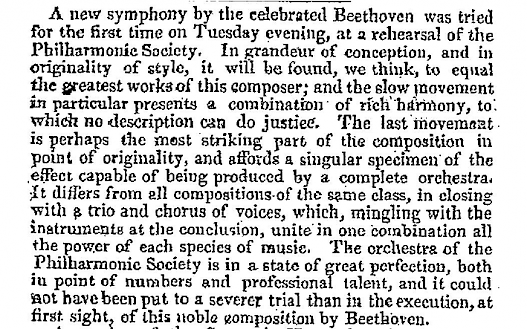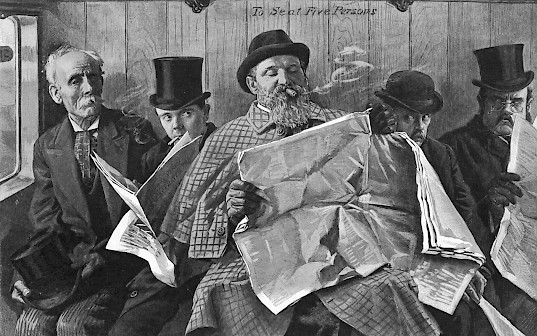Overlapping voices
'Gatekeeping, Advocacy, Reflection: Overlapping Voices in Nineteenth-Century British Music Criticism', in The Cambridge History of Music Criticism, ed. Christopher Dingle (Cambridge: Cambridge University Press, 2019), 147-69
Historians of music criticism have frequently pilloried antique writers who failed to recognize great music when they first heard it, highlighting what now seem hilariously inept judgments from a bygone age. Other historians have assumed music critics were always 'influential' because their views were paid for and published in political papers of large circulation. Still other historians have tried to squeeze multiple critics of many decades into a single construct of national identity or musical taste. My approach in The Cambridge History of Music Criticism is a bit different.
Relevant sources - British newspapers and periodicals for the period 1810-1914, mostly from London - offer an almost unfathomable wealth of music-evaluative material. I survey the ground from three angles: clear parallels with the century's changing intellectual temper over time (Enlightenment, Romanticism, Evangelicalism, Liberalism); practical factors affecting the fast-paced world of UK journalism, touching 170 known musical writers, their critical work for specific titles, and their increasingly mixed readerships; and a sampling of case studies in how individual writers used any of three possible 'voices' to communicate with readers (including other critics), on late Beethoven, Verdi, Berlioz and Wagner.
'a marvellous essay - fabulous breadth and says something really new ... I learned so much'
An Anonymous Reader
Taken together, these three angles and the tool of three voices - gatekeeping, advocacy and reflection - provide modern readers with ways to see new energy and purpose across the development of British music criticism. Critical conversations were rarely one-sided, and certainly not as monochrome, 'conservative' or naysaying as standard narratives suggest. Writers and readers alike could experience a change of mind with greater listening exposure or better understanding. Public opinion was sometimes in advance of the critics. In the UK, changes in the music and media industries - not just critics and their private rivalries - helped to shape the way opinion is formed.
'breathtaking authority and grasp of a culture, an incredible model of how to write intellectual history'
Ruth Solie Prize Committee,
North American British Music Studies Committee
 Langley
Langley
